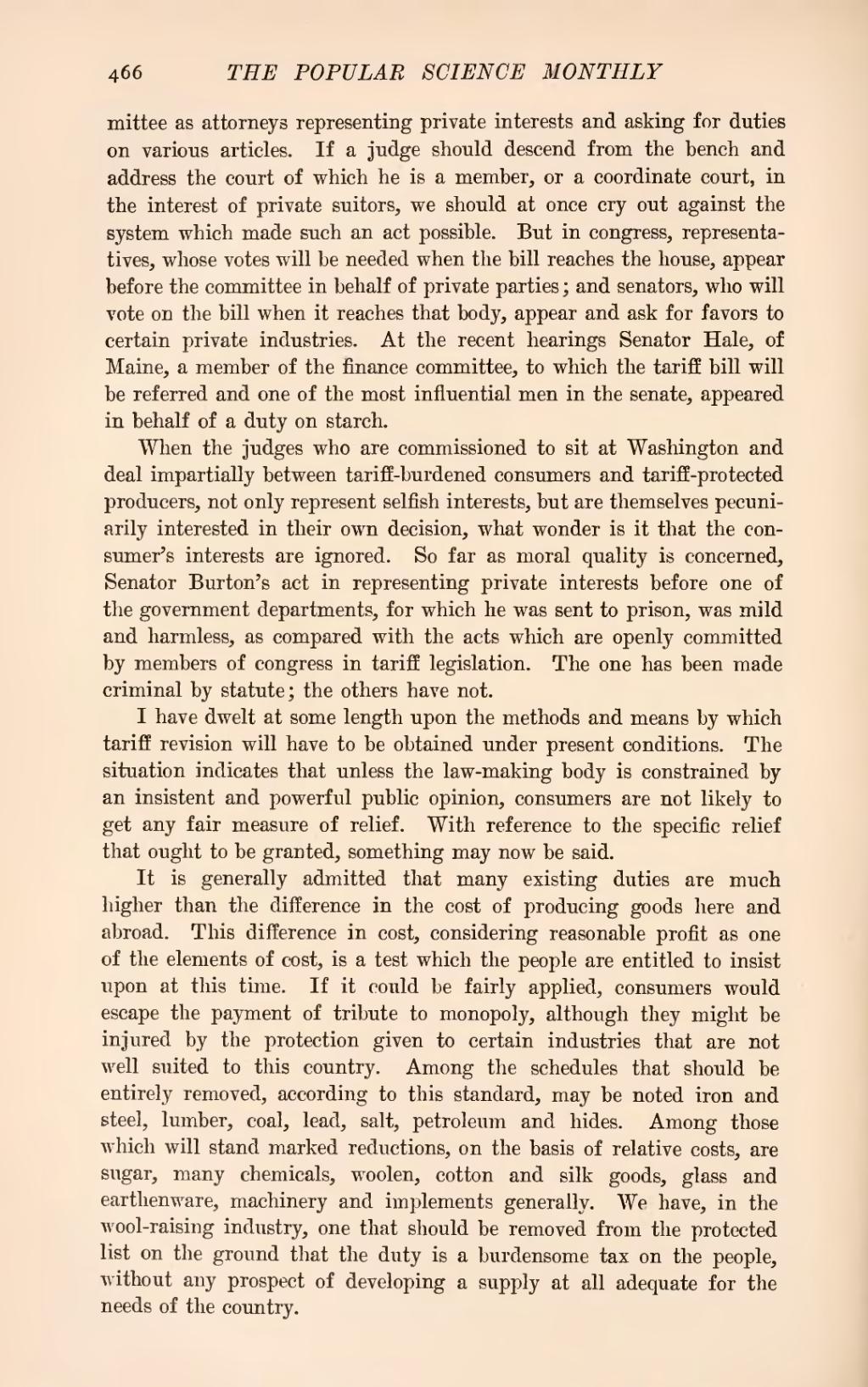mittee as attorneys representing private interests and asking for duties on various articles. If a judge should descend from the bench and address the court of which he is a member, or a coordinate court, in the interest of private suitors, we should at once cry out against the system which made such an act possible. But in congress, representatives, whose votes will be needed when the bill reaches the house, appear before the committee in behalf of private parties; and senators, who will vote on the bill when it reaches that body, appear and ask for favors to certain private industries. At the recent hearings Senator Hale, of Maine, a member of the finance committee, to which the tariff bill will be referred and one of the most influential men in the senate, appeared in behalf of a duty on starch.
When the judges who are commissioned to sit at "Washington and deal impartially between tariff-burdened consumers and tariff-protected producers, not only represent selfish interests, but are themselves pecuniarily interested in their own decision, what wonder is it that the consumer's interests are ignored. So far as moral quality is concerned, Senator Burton's act in representing private interests before one of the government departments, for which he was sent to prison, was mild and harmless, as compared with the acts which are openly committed by members of congress in tariff legislation. The one has been made criminal by statute; the others have not.
I have dwelt at some length upon the methods and means by which tariff revision will have to be obtained under present conditions. The situation indicates that unless the law-making body is constrained by an insistent and powerful public opinion, consumers are not likely to get any fair measure of relief. With reference to the specific relief that ought to be granted, something may now be said.
It is generally admitted that many existing duties are much higher than the difference in the cost of producing goods here and abroad. This difference in cost, considering reasonable profit as one of the elements of cost, is a test which the people are entitled to insist upon at this time. If it could be fairly applied, consumers would escape the payment of tribute to monopoly, although they might be injured by the protection given to certain industries that are not well suited to this country. Among the schedules that should be entirely removed, according to this standard, may be noted iron and steel, lumber, coal, lead, salt, petroleum and hides. Among those which will stand marked reductions, on the basis of relative costs, are sugar, many chemicals, woolen, cotton and silk goods, glass and earthenware, machinery and implements generally. We have, in the wool-raising industry, one that should be removed from the protected list on the ground that the duty is a burdensome tax on the people, without any prospect of developing a supply at all adequate for the needs of the country.

